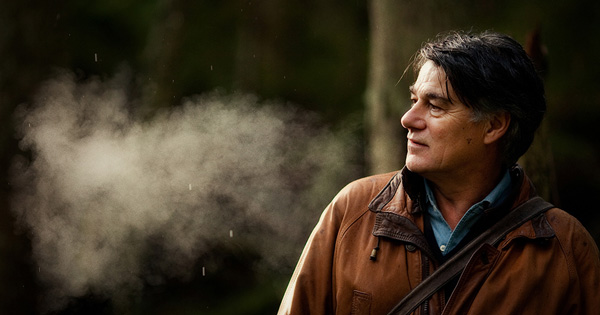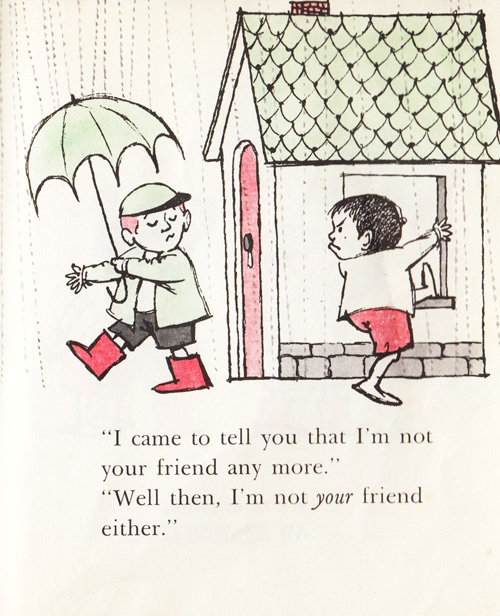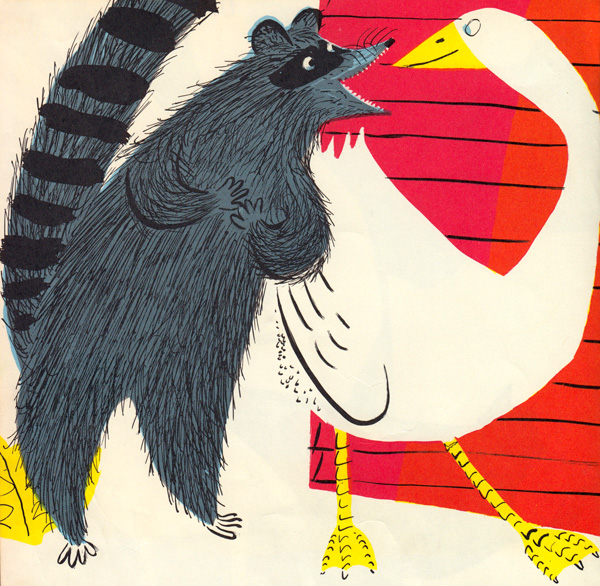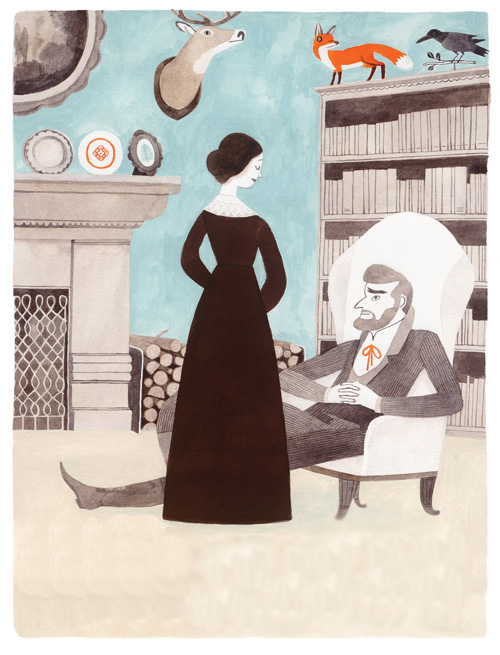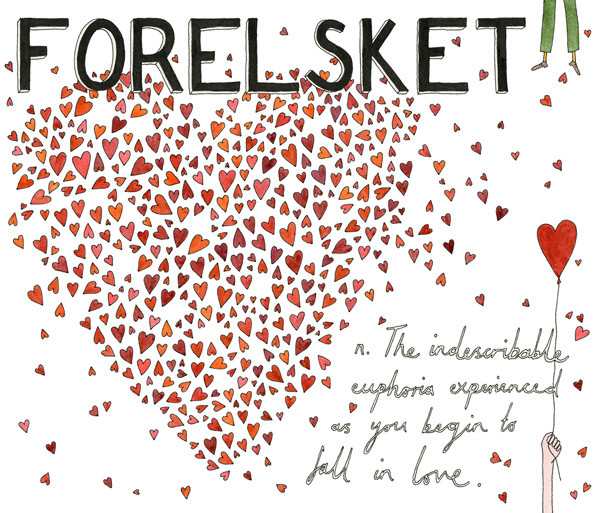David Whyte On the True Meaning of Friendship, Love, and Heartbreak
“Heartbreak is how we mature… There is almost no path a human being can follow that does not lead to heartbreak.”
“Words belong to each other,” Virginia Woolf asserted in the only surviving recording of her voice. But words also belong to us, as much as we belong to them - and out of that mutual belonging arises our most fundamental understanding of the world, as well as the inescapable misunderstandings that bedevil the grand sensemaking experiment we call life.
This constant dialogue between reality and illusion, moderated by our use of language, is what poet and philosopher David Whyte explores in Consolations: The Solace, Nourishment and Underlying Meaning of Everyday Words (public library) - a most remarkable book “dedicated to WORDS and their beautiful hidden and beckoning uncertainty.” Whyte - who has previously enveloped in his wisdom such intricacies of existence as what happens when love leaves and how to break the tyranny of work-life balance - constructs an alternative dictionary inviting us to befriend words in their most dimensional sense by reawakening to the deeper and often counterintuitive meanings beneath semantic superficialities and grab-bag terms like pain,beauty, and solace. And he does it all with a sensibility of style and spirit partway between Aristotle and Anne Lamott, Montaigne and Mary Oliver.
David Whyte (Nicol Ragland Photography)
Whyte chooses 52 such ordinary words, the same number as the playing cards in a standard deck - perhaps a subtle suggestion that words, like cards, are as capable of illusion as they are of magic: two sides of the same coin, chosen by what we ourselves bring to the duality. Indeed, dualities and counterpoints dominate the book - Whyte’s short essays examine ambition and disappointment, vulnerability and courage, anger and forgiveness.
Among the words Whyte ennobles with more luminous understanding are those connoting the most complex conversations between human hearts: friendship,love - both unconditional and unrequited - and heartbreak. Of friendship - which Emerson considered the supreme fruit of “truth and tenderness,” Aristotle the generous act of holding up a mirror to each other, Thoreau a grand stake for which the game of life may be played, and C.S. Lewis “one of those things which give value to survival” - Whyte writes:
FRIENDSHIP is a mirror to presence and a testament to forgiveness. Friendship not only helps us see ourselves through another’s eyes, but can be sustained over the years only with someone who has repeatedly forgiven us for our trespasses as we must find it in ourselves to forgive them in turn. A friend knows our difficulties and shadows and remains in sight, a companion to our vulnerabilities more than our triumphs, when we are under the strange illusion we do not need them. An undercurrent of real friendship is a blessing exactly because its elemental form is rediscovered again and again through understanding and mercy. All friendships of any length are based on a continued, mutual forgiveness. Without tolerance and mercy all friendships die.
Illustration by Maurice Sendak from 'Let's Be Enemies' by Janice May Udry.
Echoing Anne Lamott’s beautifully articulated conviction that friendship is above all the art of allowing the soft light of love to fall upon even our darkest sides, Whyte adds:
In the course of the years a close friendship will always reveal the shadow in the other as much as ourselves, to remain friends we must know the other and their difficulties and even their sins and encourage the best in them, not through critique but through addressing the better part of them, the leading creative edge of their incarnation, thus subtly discouraging what makes them smaller, less generous, less of themselves.
And yet friendship is a merited grace, one that requires of us the unrelenting commitment of showing up for and bearing witness to one another, over and over:
The dynamic of friendship is almost always underestimated as a constant force in human life: a diminishing circle of friends is the first terrible diagnostic of a life in deep trouble: of overwork, of too much emphasis on a professional identity, of forgetting who will be there when our armored personalities run into the inevitable natural disasters and vulnerabilities found in even the most average existence.
[…]
But no matter the medicinal virtues of being a true friend or sustaining a long close relationship with another, the ultimate touchstone of friendship is not improvement, neither of the other nor of the self, the ultimate touchstone is witness, the privilege of having been seen by someone and the equal privilege of being granted the sight of the essence of another, to have walked with them and to have believed in them, and sometimes just to have accompanied them for however brief a span, on a journey impossible to accomplish alone.
Whyte argues that friendship helps us “make sense of heartbreak and unrequited love” - two concepts to which he dedicates entire separate word-meditations. He writes of the former:
HEARTBREAK is unpreventable; the natural outcome of caring for people and things over which we have no control…
Heartbreak begins the moment we are asked to let go but cannot, in other words, it colors and inhabits and magnifies each and every day; heartbreak is not a visitation, but a path that human beings follow through even the most average life. Heartbreak is an indication of our sincerity: in a love relationship, in a life’s work, in trying to learn a musical instrument, in the attempt to shape a better more generous self. Heartbreak is the beautifully helpless side of love and affection and is [an] essence and emblem of care… Heartbreak has its own way of inhabiting time and its own beautiful and trying patience in coming and going.
And yet while heartbreak has this immense spiritual value, and even an evolutionarily adaptive one, we still treat it like a problem to be solved rather than like the psychoemotional growth-spurt that it is. Whyte writes:
Heartbreak is how we mature; yet we use the word heartbreak as if it only occurs when things have gone wrong: an unrequited love, a shattered dream… But heartbreak may be the very essence of being human, of being on the journey from here to there, and of coming to care deeply for what we find along the way.
[…]
There is almost no path a human being can follow that does not lead to heartbreak.
Illustration by Roger Duvoisin from 'Petunia, I Love You.'
Stripped of the unnecessary negative judgments we impose upon it, heartbreak is simply a fathometer for the depth of our desire - for a person, for an accomplishment, for belonging to the world and its various strata of satisfaction. Whyte captures this elegantly:
Realizing its inescapable nature, we can see heartbreak not as the end of the road or the cessation of hope but as the close embrace of the essence of what we have wanted or are about to lose.
[…]
Heartbreak asks us not to look for an alternative path, because there is no alternative path. It is an introduction to what we love and have loved, an inescapable and often beautiful question, something and someone that has been with us all along, asking us to be ready for the ultimate letting go.
One of the most common sources of heartbreak, of course, is unrequited love. But, once again, Whyte shines a sidewise gleam on the obscured essence of another experience we mistake for a failure rather than a triumph of our humanity - for unrequited love is the only kind of love there is, in any real sense:
UNREQUITED love is the love human beings experience most of the time. The very need to be fully requited may be to turn from the possibilities of love itself. Men and women have always had difficulty with the way a love returned hardly ever resembles a love given, but unrequited love may be the form that love mostly takes; for what affection is ever returned over time in the same measure or quality with which it is given? … And whom could we know so well and so intimately through all the twists and turns of a given life that we could show them exactly, the continuous and appropriate form of affection they need?
[…]
The great discipline seems to be to give up wanting to control the manner in which we are requited, and to forgo the natural disappointment that flows from expecting an exact and measured reciprocation.
Illustration by Isabelle Arsenault from 'Jane, the Fox and Me,' a graphic novel inspired by Jane Eyre.
Indeed, most of our dissatisfaction with life stems from wishing for the present moment to be somehow different, somehow better-conforming to the rigid expectation we set for it at some point in the past. And yet nowhere is this rigidity of requirement more stifling than in love - that glorious “dynamic interaction” of souls responsive to one another, which requires a constant learning and relearning of a common language. Whyte considers what it is we really fear when we hide behind the merciless moniker of “unrequited” love:
We seem to have been born into a world where love, except for brilliant, exceptional moments, seems to exist from one side only, ours — and that may be the difficulty and the revelation and the gift — to see love as the ultimate letting go and through the doorway of that affection, make the most difficult sacrifice of all, giving away the very thing we want to hold forever.
Norwegian for 'the inescapable euphoria experienced as you begin to fall in love,' from 'Lost in Translation' by Ella Frances Sanders.
Paradoxically, our notion of “unconditional love” is beset by the same self-defeating absolutism of expectation. Arguing that the very concept of it is a “beautiful hoped for impossibility,” Whyte writes:
Love may be sanctified and ennobled by its commitment to the unconditional horizon of perfection, but what makes love real in the human world seems to be our moving, struggling conversation with that wanted horizon rather than any possibility of arrival. The hope for, or the declaration of a purely spiritual, unconditional love is more often a coded desire for immunity and safety, an attempt to forgo the trials of vulnerability, powerlessness and the exquisite pain to which we apprentice ourselves in a relationship, a marriage, in raising children, in a work we love and desire.
[…]
The hope for unconditional love is the hope for a different life than the one we have been given. Love is the conversation between possible, searing disappointment and a profoundly imagined sense of arrival and fulfillment; how we shape that conversation is the touchstone of our ability to love in the real inhabited world. The true signature and perhaps even the miracle of human love is helplessness, and all the more miraculous because it is a helplessness which we wittingly or unwittingly choose; in our love of a child, a partner, a work, or a road we have to take against the odds.
In the remainder of Consolations, which is immeasurably enlivening in its entirety, Whyte goes on to unpeel such concepts as shyness, vulnerability,honesty, and genius.
This article originally appeared in Brain Pickings and is republished with permission. The author, Maria Popova, is a cultural curator and curious mind at large, who also writes for Wired UK, The Atlantic and Design Observer, and is the founder and editor in chief of Brain Pickings.

